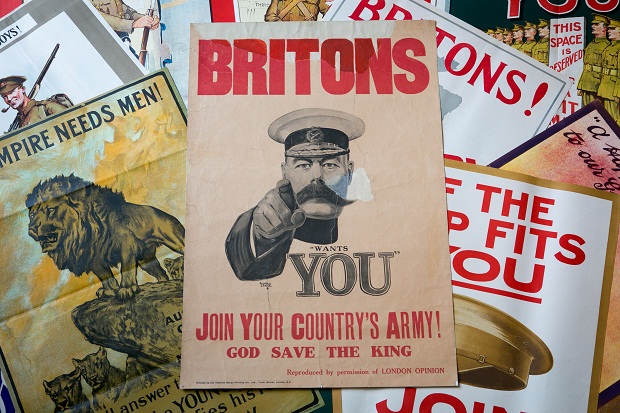I’ve just been in France, where the shadow of the First World War always seems to be darker and longer than that cast over Britain; it is partly that, aesthetically, their war memorials are far more haunting than ours, but also that in sheer numbers our allies lost more men than we did, up to 1.4 million French soldiers died in the conflict. It still seems to haunt the country, and anyone travelling through empty countryside into a small town with its thick list of casualties engraved under the legend ‘mort pour la patrie’ can see why Frenchmen would ask ‘why die for Danzig?’ 20 years later; and can’t quite manage even a faint smile to the weak jokes about France’s supposed military failures.
But then we ought to be wary about commemorating an event that is still so relevant to international politics today, and to which everyone therefore naturally draws their own preferred lessons. While in the Pays de la Loire, a 78-year-old man engaged us in conversation and told us that he had one reason to dislike the English and one reason to love them; firstly we burned Joan of Arc, which led him to burst into a joyous song about defecating on the head of the king of England; more importantly, our brave young pilots had fought on against the Nazis when all looked lost, which left a lasting impression on him as a young boy. He would never forget them.
Did I love Europe, he asked me? Yes, I tried to explain in French (he spoke good English, but I try to wrestle the conversation back to French), I did love Europe, but I didn’t particularly like the EU. My terrible French probably didn’t convey the distinction, but he said we must all stand together to stand up to the thuggish Putin, as we hadn’t stood together in the past.
I shared his sentiments about Europe, but not the idea that Putin is Hitler or even the Kaiser (or Napoleon or Louis XIV, for that matter). We’re mistaken if we can learn anything from the past, in my opinion, because historical dramas contain storylines with only superficial similarities; both the Ukrainians and Russians are living out the trauma of the 1930s in their heads, as are the supporters of the European Union – and, for that matter, our (in my opinion) mistaken decision to fight a just but unwise war has no bearing on whether we should be part of the EU.
Neither 1914 nor 1938 are any sort of guide to foreign policy today.







Comments